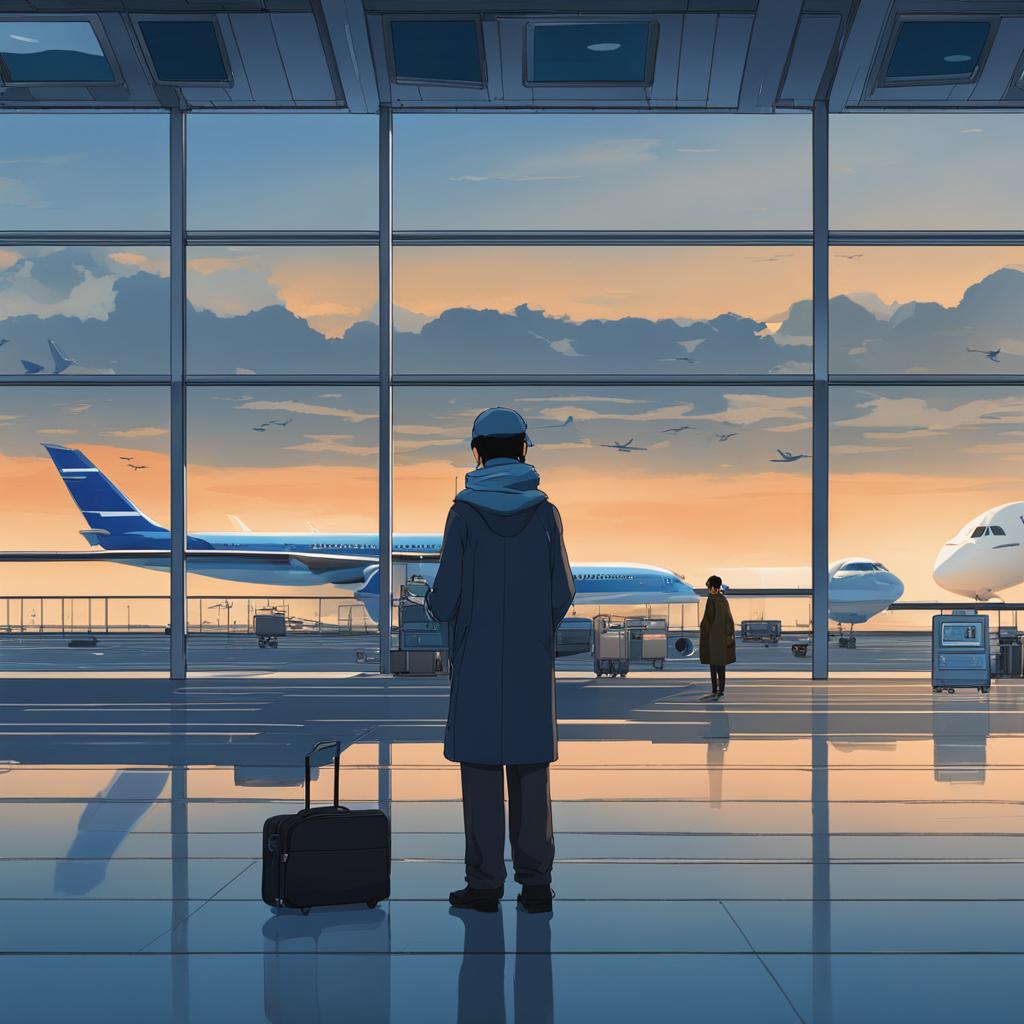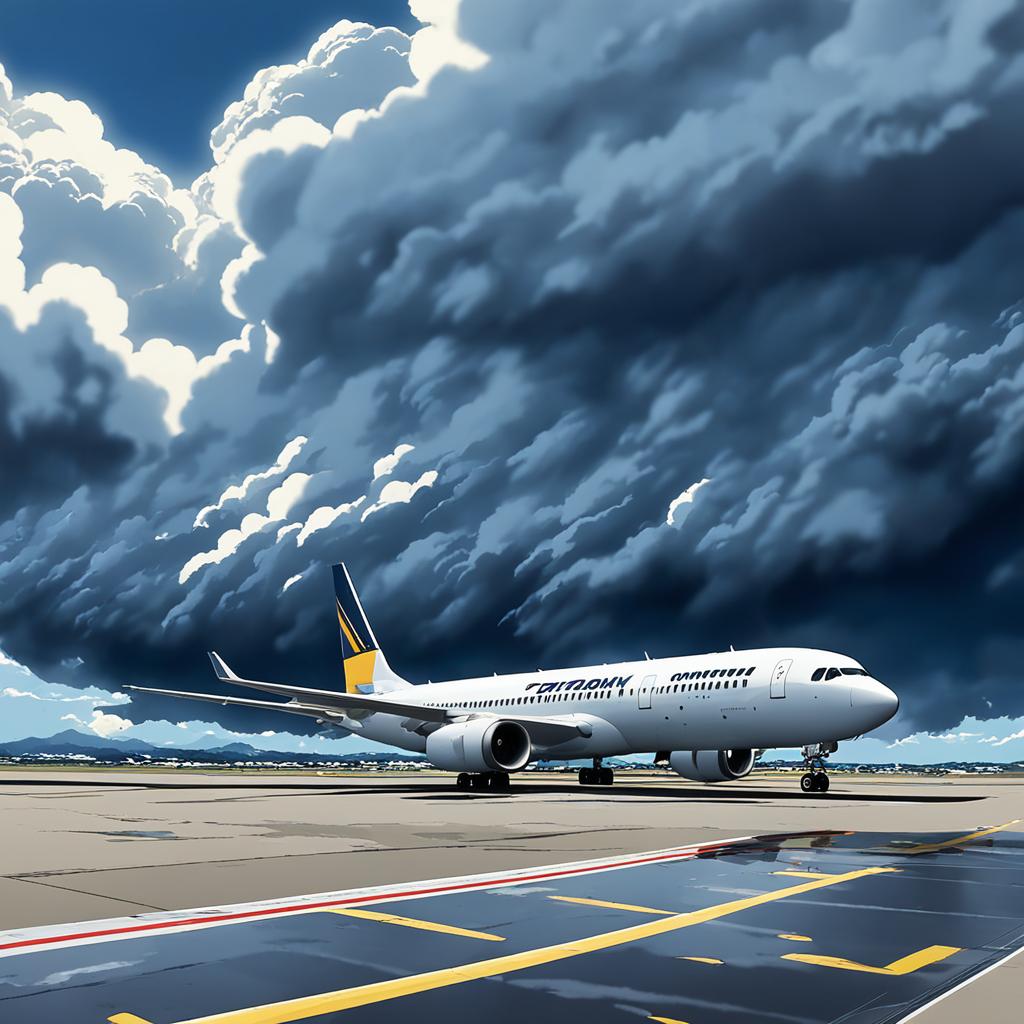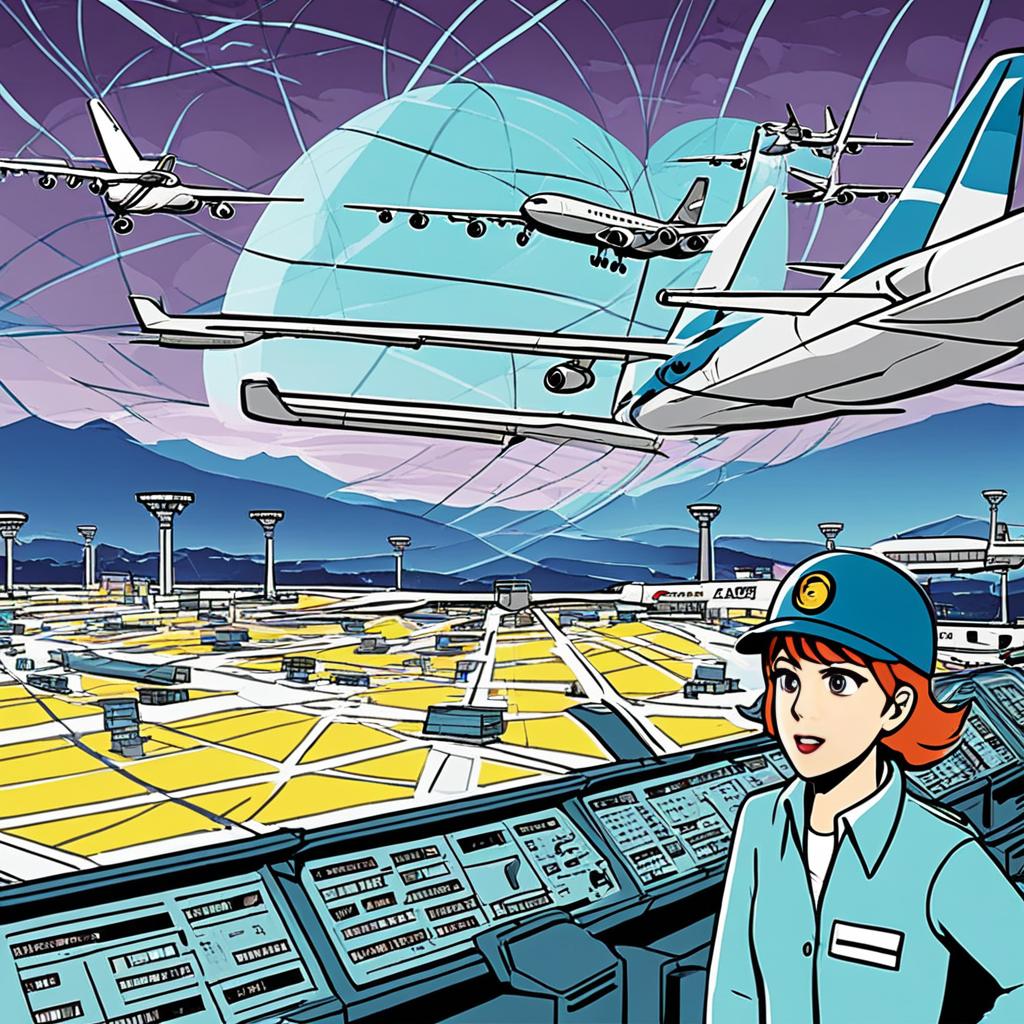Have you ever wondered why your flight was canceled and who is responsible for making that decision? Contrary to popular belief, it is not air traffic control that directly cancels flights. The decision to cancel a flight lies in the hands of the airline itself. So, what role does air traffic control play in the process? Let’s find out.
When air traffic control imposes restrictions or requests the cancellation of a flight, it happens for a reason. These reasons can range from weather conditions and air traffic congestion to staffing shortages. But ultimately, the goal is to ensure your safety in the skies.
So, the next time you experience a flight cancellation, remember to reach out to your airline for more information and to understand the reason behind it. In this article, we will explore the various factors that can lead to flight cancellations and how they impact your travel plans. Stay tuned to uncover the truth behind flight cancellations and deepen your understanding of air travel complexities.
Reasons for Flight Cancellations
Flight cancellations can occur due to various reasons. Some of the most common reasons include severe weather conditions, such as thunderstorms or snowstorms, which can impact the safety of the flight. These weather events can make it challenging for pilots to navigate and land safely, leading to cancellations for passenger safety.
Another reason for flight cancellations is air traffic control restrictions. During peak travel times or when there is congestion in the airspace, air traffic control may impose restrictions on flights. This is done to manage the flow of air traffic and ensure the safety of all aircraft. In such cases, flights may be canceled or delayed until the situation improves.
Staffing shortages can also result in flight cancellations. Both flight crew and air traffic controllers are essential for the operation of flights. If there is a shortage of personnel, airlines may be forced to cancel flights. This can occur due to various factors such as pilot shortages, unavailability of crew members, or operational challenges within the airline.
In addition, flight cancellations can also be caused by mechanical problems with the aircraft. Issues such as engine malfunctions or electrical failures can make the aircraft unsafe to fly, leading to cancellations to ensure passenger safety.
Lastly, security issues can also result in the cancellation of flights. Incidents or concerns related to civil unrest, terror threats, or airport emergencies may lead to flight cancellations for the safety of passengers and crew.
It is important to note that airlines have different policies for compensating passengers in the event of a cancellation. Familiarize yourself with your specific carrier’s rules to understand what options may be available to you.
Impact of the Pandemic on Flight Cancellations

The COVID-19 pandemic had a significant impact on air travel, resulting in numerous flight cancellations. Airlines had to reduce operations as travel restrictions and lockdown measures were implemented globally. The reduced demand for air travel and the need to prioritize passenger safety led to a high number of flight cancellations during the pandemic. While airlines may offer refunds, vouchers, or the option to rebook flights that were canceled due to the pandemic, compensation may not always be provided as these disruptions are often considered extraordinary circumstances.
The pandemic caused a massive disruption to the aviation industry, forcing many airlines to cancel flights due to various factors. Travel restrictions and lockdown measures implemented by governments across the world aimed to curb the spread of the virus. These measures significantly affected air travel, leading to a sharp decline in passenger demand and revenue for airlines. To mitigate financial losses and ensure passenger safety, airlines were left with no choice but to cancel a significant number of flights.
The pandemic’s impact on flight cancellations extended beyond individual airlines. The spread of the virus prompted governments to impose travel restrictions, including border closures, quarantine requirements, and entry bans. These measures directly affected the ability of airlines to operate their scheduled flights, resulting in widespread cancellations. Passengers with existing bookings had to endure the inconvenience of having their travel plans disrupted, often with limited alternative options.
- The reduced demand for air travel due to the pandemic led to a high number of flight cancellations.
- Airlines had to reduce operations and cancel flights as travel restrictions and lockdown measures were implemented globally.
- Passenger safety became a top priority, leading to the cancellation of flights to mitigate the risk of virus transmission.
- Refunds, vouchers, or rebooking options were offered by airlines as compensation for canceled flights.
- Flight cancellations during the pandemic were considered extraordinary circumstances, and compensation may not always be provided.
As airlines navigate the challenges posed by the pandemic, it is crucial for passengers to stay informed about their rights and options when facing flight cancellations. Understanding the airlines’ policies regarding refunds, vouchers, and rebooking can help passengers make informed decisions in such situations. It is also advisable to regularly check for updates on travel restrictions and health guidelines to anticipate any potential disruptions to future travel plans.
| Impacts of the Pandemic on Flight Cancellations | Considerations |
|---|---|
| Significant reduction in air travel demand | Airlines had to cancel flights to align with decreased passenger bookings. |
| Global travel restrictions and lockdown measures | Border closures, quarantine requirements, and entry bans limited flight operations. |
| Priority on passenger safety and virus containment | Cancellations aimed to mitigate the risk of virus transmission during travel. |
| Refund, voucher, or rebooking options | Airlines offered compensation and flexibility to affected passengers. |
| Extraordinary circumstances | Flight cancellations due to the pandemic were not always eligible for compensation |
Severe Weather and Air Traffic Control Restrictions

Severe weather conditions, such as thunderstorms or heavy snowfall, can have a significant impact on flight operations. These weather events pose risks to the safety of both passengers and crew, making flight cancellations a necessary precaution. Thunderstorms can create hazardous conditions, including strong winds, turbulence, and lightning, which can affect the ability of pilots to navigate and land safely. Similarly, heavy snowfall can result in reduced visibility and dangerous runway conditions.
Air traffic control also plays a crucial role in managing flight operations during severe weather events. They may impose restrictions on flights to ensure the safety of all aircraft. These restrictions can include rerouting flights, delaying takeoffs or landings, or even temporarily grounding flights. The primary goal is to manage the flow of air traffic and prevent congestion in the airspace, reducing the risk of accidents or collisions.
It is important to understand that weather-related flight cancellations may not always qualify for compensation from the airline. These cancellations are often considered beyond the control of the airline, as they are a result of unpredictable and potentially dangerous weather conditions. However, airlines may offer alternative flights, refunds, or accommodation options in such cases, depending on their specific policies and the severity of the weather event.
Staffing Shortages and Mechanical Problems
Staffing shortages and mechanical problems are common factors that can lead to flight cancellations. Airlines heavily rely on a sufficient number of trained personnel, both in terms of flight crew and ground staff, to operate their flights smoothly. When there are staffing shortages, such as pilot shortages, illness or unavailability of crew members, or operational challenges within the airline, flights may be canceled for the safety and efficiency of operations.
Mechanical problems with the aircraft are another significant cause of flight cancellations. These problems can range from engine issues to electrical failures, and they are usually considered within the control of the airline. When a mechanical problem is detected, airlines prioritize the safety of their passengers by canceling the flight and addressing the issue before resuming operations.
If your flight is canceled due to staffing shortages or mechanical problems, it is important to check with your airline for alternative arrangements. Many airlines will provide options such as rebooking on another flight, refunds, or vouchers for future travel. The specific compensation or options available to you will depend on the policies of the airline.
In the event of a flight cancellation due to staffing shortages or mechanical problems, remember to:
- Contact your airline for information and alternative arrangements.
- Check if the airline offers rebooking, refunds, or vouchers.
- Familiarize yourself with the airline’s policies regarding compensation.
- Be patient and understanding as the airline works to resolve the issue.
Flight cancellations caused by staffing shortages and mechanical problems are unfortunate but necessary measures to ensure passenger safety and maintain operational efficiency. Airlines strive to minimize these disruptions and provide appropriate solutions to affected passengers.
Security Issues and Strikes
Security incidents or concerns can sometimes lead to the cancellation of flights to ensure the safety of passengers and crew. These incidents may involve civil unrest, terror threats, or airport emergencies. While the cancellation of flights due to security issues usually does not qualify for direct compensation, airlines may offer alternative options such as rebooking or vouchers for affected passengers.
Another factor that can result in flight cancellations is strikes by airline or airport staff. These strikes may arise from labor disputes or protests aimed at improving working conditions. The compensation or options provided to passengers in the event of a strike-related cancellation may vary depending on the specific circumstances of the strike and the policies of the airline.
It is important to note that both security issues and strikes are unpredictable events that can significantly disrupt travel plans. In such situations, it is advisable to stay informed through official airline communications or check their website and contact their customer service for further assistance. Understanding the airline’s policies and available options can help minimize inconvenience and ensure a smoother travel experience.
FAQ
Q: Why would air traffic control cancel a flight?
A: Air traffic control does not directly cancel flights. The decision to cancel a flight is made by the airline. Air traffic control may impose restrictions or request the cancellation of a flight due to reasons such as weather conditions, air traffic congestion, or staffing shortages. However, the ultimate goal is to ensure passenger safety.
Q: What are the reasons for flight cancellations?
A: Flight cancellations can occur due to various reasons, including severe weather conditions, air traffic control restrictions, staffing shortages, mechanical problems, security issues, and strikes.
Q: How did the pandemic impact flight cancellations?
A: The COVID-19 pandemic had a significant impact on air travel, leading to numerous flight cancellations. Airlines had to reduce operations due to travel restrictions and prioritize passenger safety. While airlines may offer refunds, vouchers, or rebooking options for flights canceled due to the pandemic, compensation may not always be provided as these disruptions are often considered extraordinary circumstances.
Q: Why do severe weather conditions and air traffic control restrictions cause flight cancellations?
A: Severe weather conditions, such as thunderstorms or heavy snowfall, can pose significant risks to flight operations and impact the safety of the flight. Air traffic control may impose restrictions during adverse weather conditions to ensure the safety of all aircraft and prevent airspace congestion.
Q: What are the causes of staffing shortages and mechanical problems resulting in flight cancellations?
A: Staffing shortages, both in terms of flight crew and ground staff, can lead to flight cancellations. This can occur due to factors such as pilot shortages, crew member unavailability, or operational challenges within the airline. Mechanical problems with the aircraft, such as engine issues or electrical failures, can also result in flight cancellations.
Q: Why do security issues and strikes cause flight cancellations?
A: Security incidents or concerns, such as civil unrest or terror threats, can lead to flight cancellations for the safety of passengers and crew. Strikes by airline or airport staff, related to labor disputes or protests, can also result in flight cancellations. The compensation or options offered to passengers in the event of a strike-related cancellation may vary depending on the airline’s policies and the specific circumstances of the strike.
